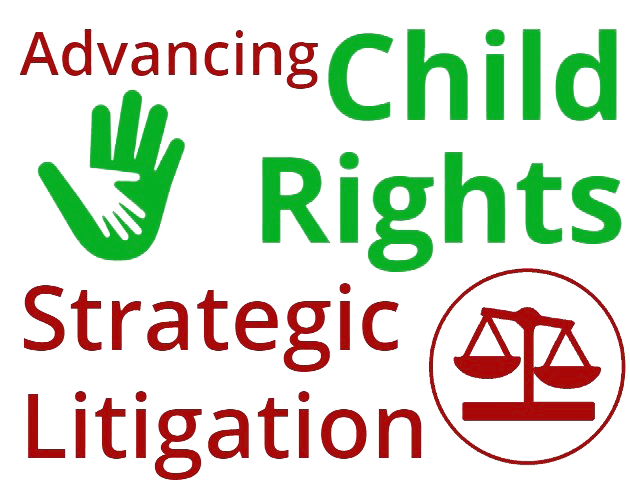Moyo v Attorney General of Malawi [2009] MWHC 83 - Malawi
Background
Evance Moyo (applicant) was convicted of a murder he committed at the age of 16. He was ordered to be detained at Chilwa Approved School during the pleasure of the President in lieu of the then mandatory death sentence for murder on account of the fact the applicant was a child at the time of commission of the offence (consistent with section 11(1) of the Children and Young Persons Act and section 26(2) of the Penal Code).
Prior to trial, the applicant had been remanded in the adult section of a maximum security prison for approximately 5 years.
The main issues the court considered were whether (i) the applicant’s rights had been violated in being incarcerated together with adults; (ii) section 11(1) of the Children and Young Persons Act and section 26(2) of the Penal Code were unconstitutional; (iii) the applicant should be released immediately or his case be urgently considered by the Board of Visitors; and (iv) the applicant should be compensated.
Reasoning
The Court found that the incarceration of the applicant with adults before and after his trial was a “blatant violation of his fundamental human rights to freedom” (p. 6) under the Constitution (section 42(2) (g)), the Children and Young Persons Act (section 31) and the CRC (Art. 3).
The Court did not find that sentences detaining a child at the pleasure of the President were unconstitutional, citing in particular the comparable provision under the Powers of Criminal Courts (Sentencing) Act 2000 of the United Kingdom (section 90). The Court held that where a child was detained at the President’s pleasure, the implications were that the situation of the child would be constantly reviewed and that the child must have “access to education and all other amenities that will help him develop into a productive citizen”. The detention system must prioritise the welfare of the child and any incarceration must be for the shortest time possible and as a last resort. The Court held that a sentence at the pleasure of the President was to be equated to an indeterminate sentence which cannot be held to be unconstitutional.
The Court ordered the immediate release of the applicant having regard to the fact that he had been detained for so long without review and that subjecting the matter for further review of the Board of Visitors and then the President would serve only to delay his inevitable release.
The Court ordered no compensation be paid. The Court’s view was that the applicant was incarcerated following due process and that such incarceration was not arbitrary. Despite his incarceration being a violation of the applicant’s human rights, the Court’s view was that immediate release was the best compensation.
Remedy
The Court ordered the immediate release of the applicant with no compensation for the applicant and awarded costs in his favour.
Role of children
Evance Moyo was a child at the time he committed the offence with which he was convicted, but an adult at the time of this case.
Enforcement and other outcomes
The case led to the applicant’s release. In 2012, the Children and Young Persons Act 1969, under which Moyo was sentenced at the pleasure of the President, was replaced by the Child Care, Protection and Justice Act 2010, which does not contain any provision that allows for the sentencing of a child at the pleasure of the President. The Child Care, Protection and Justice Act 2010 sought, among others, to recognise the principles of the Convention on the Rights of the Child. While section 26(2) of the Penal Code remains in force, it has been amended such that sentencing at the pleasure of the President is now to be made only on the advice of the Child Case Review Board.
Significance of the case from a CRSL perspective
This case is significant in terms of the development of strategic litigation on criminal justice issues involving children in Malawi. In it, the Court confirmed that the Convention on the Rights of a Child is binding on Malawi and all of its public or private institutions, and therefore national practices should be in line with CRC standards. The CRC has been referred to in other subsequent cases in Malawi relating to the sentencing of children as adults (e.g., The State (ex parte Stanford Kashuga) v. the Second Grade Magistrate Court (Thyolo) and Malawi Prison Service (2015)).
Country
Malawi
Forum and date of decision
The High Court of Malawi
August 25, 2009
CRC provisions and other international law provisions/sources
Convention on the Rights of the Child (CRC), Articles 3 and 37(c)
International Covenant on Civil and Political Rights, Article 10(2)(b)
Domestic law provisions
Republican Constitution of Malawi, Section 42(2)(g)(ii) and (iii)
Children and Young Persons Act of Malawi (now repealed), Sections 4, 11(1) and 11(4)
Penal Code (Chapter 7:01) [as amended to Act No. 8 of 1999], Section 26(2)
Powers of Criminal Courts (Sentencing) Act 2000 of the United Kingdom, section 90
Related information
For the applicants:
Mr M Mambulasa, of Counsel for the Applicant
For the Respondent:
List of amicus curiae:
Malawi Human Rights Commission
H.B. House, Off Paul Kagame Road
Private Bag 378 Lilongwe 3, MalawiArea 10, Plot 47, Near VSO Head Office,
Lilongwe, Malawi,
Centre for Human Rights, Education, Advice and Assistance (CHREAA)
Kenyatta Road
Chitawira Location
Roots Complex
Case documents
Moyo v Attorney General of Malawi [2009] MWHC 83
Secondary documents
Odala, V., 2012. The Spectrum for Child Justice in the International Human Rights Framework: From "Reclaiming the Delinquent CHild" to Restorative Justice. AM. U. INT’L L. REV., [online] 27(3). [Accessed 8 June 2022].
Salc Bloggers. 2009. Evance Moyo Judgement Handed Down in Malawi. [online]. [Accessed 8 June 2022].
Southern Africa Litigation Centre, 2009. Malawi's Constitutional Court Hands Down Evance Moyo Judgement. [online] Southernafricalitigationcentre.org. [Accessed 8 June 2022].
The Nation Online. 2015. Court rules on Executive, Judicial powers - The Nation Online. [online]. [Accessed 14 June 2022].
